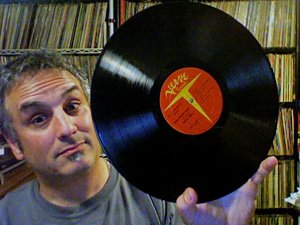It’s the time of year for saving money!
A new archival release from Omnivore Recordings features the recently rediscovered solo performances by the obscure but revered pianist Hassan Ibn Ali. Last year the label issued an eye-opening previously unreleased second album that was long thought to not even exist anymore. I encourage you to click here to read my review of that fine and fascinating album as it presents useful backstory I don’t repeat here.
Hassan Ibn Ali’s new Retrospect In Retirement Of Delay: The Solo Recordings was never really meant for commercial release. But, it is a blessing that his friends who were students at the time had the insight to capture these fascinating raw recordings. As detailed in the copious liner notes, most of these sessions were made in various dormitory lounges at the University of Pennsylvania between 1962 and 1964. It is an equal blessing that these tapes were preserved by the center for Jazz Studies at Rutgers University in Newark, NJ.
Retrospect In Retirement Of Delay: The Solo Recordings is a fascinating “fly on the wall” experience of listening to this overlooked and under-appreciated player fine tuning his remarkable technique. His sound falls somewhere between Thelonious Monk, Bud Powell, Oscar Peterson and – – godfather of high speed piano wizardry — Art Tatum.
And yet, that is not enough to describe him fully because he’s playing with time and space on these performances. The way he holds onto phrases and improvises around them for extended moments leans toward the sort of progressive rock spectacle one might hear from later synthesizer wizards like Rick Wakeman at his peak. The swirling and floating intro to his version of “On Green Dolphin Street” could be a prog rock intro to an epic performance of Yes’ “Siberian Khatru.” And I am saying this in the most positive way possible. This was music breaking boundaries of then current song structures so its no wonder it confused many of his peers — ahead of his time is an understatement.
He swings. He soars. He surprises.
There is speculation that Coltrane spent time with Ali and that the saxophone legend’s “sheets of sound” technique was built out of this inspiration. That makes good sense. Ali’s playing also pre-echos players like Don Pullen who explored that sort of process on the ivories in the 1970s and beyond.
I admit that I have had to listen to Hassan Ibn Ali’s Retrospect In Retirement Of Delay: The Solo Recordings in fits and starts. This album is akin to eating a very rich five course meal in a very upscale restaurant: one needs to pause and cleanse one’s palate between courses.
I’ll try the lemon-vodka sorbet, thank you…
If you give yourself the time and pause to consider what he was doing — track by track — I suspect you’ll be awestruck and interested in exploring his other available recordings.
Some of you may out in the land of audiophiles may be wondering just how “raw” these recordings actually sound. Well, we know they are Mono and made in a college dormitory lounges. So that should cue you in a bit. The liner notes indicate that Baldwin and Steinway pianos were used in some of those spaces but — true to the state of most “public” instruments (if you will) like that — they could have used some tuning… Later recordings on Disc 2 were played in apartments in Philadelphia and New York, so they were probably smaller instruments still.
The point is, folks, these are not recordings made at Abbey Road or with Rudy Van Gelder or in Hans Georg Brunner-Schwer’s studio in the Black Forest of Germany. Set your expectations accordingly! A CD is more than adequate for the fidelity here. These mono recordings were probably made on some sort of consumer grade portable recorder of the times, so the fidelity is not optimal. Many audiophiles would consider it poor quality.
But sound quality isn’t why you buy this album. You listen to these recordings because you want to hear this rarely recorded artist and are interested in hearing any available documents of his playing. This listening experience is all about the jump into the magnetic tape time machine. Step inside, take a breath and set the wayback machine to those dormitory lounges where you will hear this frighteningly gifted musician who never really got his time in the spotlight, perform for you.
This is a cool release. Now, when will there be a reissue of his one album officially released in his lifetime?














